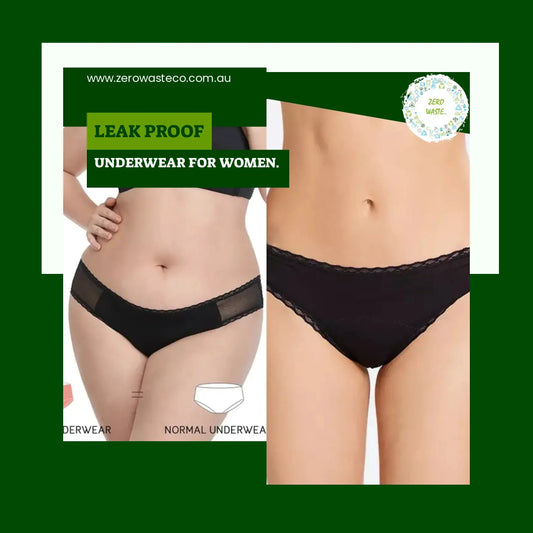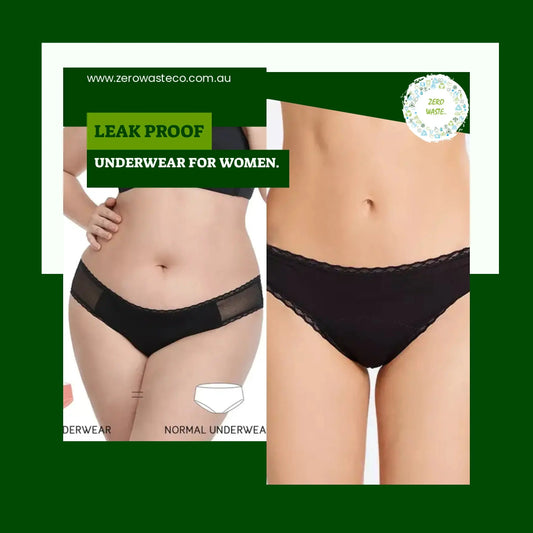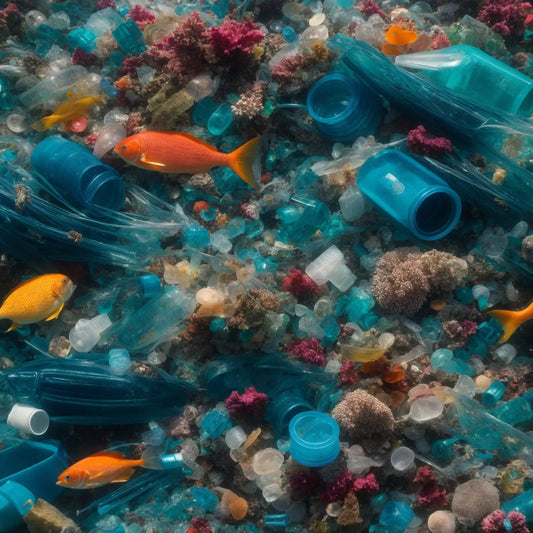As we navigate the complex challenges of our modern world, the hidden dangers of soft plastics have emerged as a pressing concern for eco-conscious individuals and businesses alike. Soft plastic damage, manifesting through microplastics' impact on our oceans and landfills, threatens not only wildlife but our own health as these microscopic particles infiltrates the food chain. It's time for a change, and fortunately, the shift toward eco-friendly alternatives like compostable products offers a promising solution. By choosing compostable packaging, we don't just reduce plastic waste; we actively participate in a circular economy that fosters environmental health and sustainable living. Together, we can embrace compostable innovations and inspire a wave of positive change for a cleaner, greener future.
Understanding Soft Plastic Damage
Environmental Threats of Soft Plastics
Soft plastics, such as wrappers and bags, are omnipresent in our daily lives, but they pose significant environmental threats. Once discarded, these materials often end up in landfills or oceans, where they can take hundreds of years to decompose. During this prolonged breakdown process, soft plastics fragment into microplastics, tiny particles that infiltrate ecosystems. Microplastics' impact on marine life is profound, as fish and other sea creatures ingest them, mistaking them for food. This ingestion not only harms wildlife but also disrupts entire food chains and ecosystems. On land, soft plastics hinder soil health by preventing nutrient absorption and water flow, which are essential for plant growth. As eco-conscious consumers, understanding these environmental threats underscores the urgency of seeking eco-friendly alternatives. By shifting to compostable products, we can mitigate these dangers and protect our planet's delicate ecosystems.
Health Implications of Microplastics
Microplastics are more than just an environmental issue; they're a growing health concern. These minuscule particles make their way into our food chain, ultimately ending up on our plates. Studies have shown that humans can ingest microplastics through seafood, water, and even air. While the long-term health effects are still being studied, there's growing evidence that these particles can cause inflammation, disrupt endocrine functions, and potentially lead to more severe health problems. Ingested microplastics can carry toxic chemicals that may be harmful to human health. The persistent presence of microplastics in our bodies is alarming, highlighting the importance of addressing soft plastic damage. By opting for eco-friendly alternatives like compostable products, we can reduce our exposure to these harmful particles. It's crucial for eco-conscious individuals to understand these health implications and advocate for a lifestyle that prioritizes both personal well-being and environmental health.

The Role of Landfills and Oceans
Landfills and oceans play a significant role in the lifecycle of soft plastics, often serving as their final resting places. In landfills, soft plastic waste accumulates, taking up valuable space and contributing to long-term environmental damage. These materials are not biodegradable, meaning they persist for centuries, slowly breaking down into harmful microplastics. The presence of soft plastics in landfills also impedes waste decomposition processes, leading to increased greenhouse gas emissions.
Oceans are equally affected, as plastic waste often finds its way into waterways through littering and runoff. Once in the ocean, plastics break down into microplastics, posing severe risks to marine life and ecosystems. Ocean currents can carry these particles vast distances, making the problem a global issue. Addressing the role of landfills and oceans in soft plastic damage is crucial for eco-conscious individuals. By adopting compostable products, we can significantly reduce the plastic waste burden on these critical environments.
The Microplastics Impact on Ecosystems
Infiltration into the Food Chain
Microplastics' infiltration into the food chain is a concerning development with far-reaching implications. These tiny particles are often consumed by marine organisms like plankton, which serve as the foundation of the oceanic food web. As larger animals eat these contaminated organisms, microplastics travel up the food chain, eventually reaching humans. This bioaccumulation poses a serious risk to biodiversity and ecosystem health. Studies have revealed that fish and shellfish sold in markets often contain microplastics, meaning that our dietary choices can inadvertently include these harmful particles. The presence of microplastics in the food chain can lead to decreased nutritional value of seafood and potential health risks for consumers. For eco-conscious individuals, understanding this infiltration highlights the urgent need for sustainable living practices. By choosing compostable packaging and reducing plastic waste, we can mitigate these risks and promote a healthier ecosystem for all.

Effects on Wildlife and Habitats
Microplastics have devastating effects on wildlife and their habitats. Animals often mistake these tiny particles for food, leading to ingestion that can cause physical harm or even death. For instance, birds and fish that consume microplastics can suffer from blocked digestive tracts, reduced feeding behaviours, and lower reproductive success. The ingestion of microplastics can also expose wildlife to toxic chemicals, further endangering their health and survival.
Habitats are not spared either. Microplastics can alter the physical and chemical properties of environments like soil and water, affecting plant growth and water quality. Coral reefs, already under threat from climate change, can experience additional stress from microplastic pollution, impacting biodiversity and ecosystem stability. For eco-conscious consumers, understanding these impacts underscores the importance of reducing plastic waste. By adopting compostable products, we can help protect wildlife and preserve natural habitats, fostering a more sustainable and healthier planet.
Long-term Environmental Health Risks
The long-term environmental health risks posed by microplastics are substantial and concerning. As these particles persist in ecosystems, they accumulate in soils, waterways, and oceans, leading to pervasive contamination. Over time, microplastics can alter soil composition, affecting plant growth and agricultural productivity. In aquatic environments, they disrupt natural processes, such as nutrient cycling and oxygen supply, essential for sustaining life.
Additionally, microplastics serve as carriers for toxic pollutants and persistent organic chemicals, which can further contaminate ecosystems and enter the food chain. These pollutants can have cascading effects, weakening ecosystem resilience and biodiversity. The long-term presence of microplastics may also exacerbate climate change impacts by affecting the ocean's ability to sequester carbon.
For those committed to sustainable living, acknowledging these risks emphasizes the urgent need for action. Transitioning to compostable products can reduce plastic pollution, mitigate long-term environmental health risks, and contribute to a sustainable, healthy ecosystem for future generations.
Embracing Eco-Friendly Alternatives
Transitioning to Compostable Products
Transitioning to compostable products is a practical step towards reducing plastic waste and fostering environmental health. Compostable products are designed to break down into natural elements in a composting environment, leaving no toxic residue. This shift can significantly decrease the volume of plastic waste that ends up in landfills and oceans, curbing the microplastics impact.
For individuals and businesses, the transition begins with awareness and commitment to sustainable living. Start by identifying everyday items that can be replaced with compostable alternatives, such as packaging, utensils, and bags. Many companies now offer compostable options that perform as well as their plastic counterparts, making the switch seamless.
Community involvement is also crucial. Encouraging local businesses to adopt compostable materials and advocating for municipal composting facilities can amplify efforts. By embracing compostable products, eco-conscious consumers can play an active role in promoting a circular economy and inspiring a broader movement towards sustainable practices.
Benefits of Compostable Packaging
Compostable packaging offers numerous benefits that align with eco-friendly and sustainable living goals. First and foremost, compostable packaging reduces the reliance on traditional plastics, significantly lowering plastic waste in landfills and oceans. Unlike conventional plastics, compostable materials break down naturally, akin to organic waste, leaving no harmful residues.
Apart from waste reduction, compostable packaging supports a circular economy. By returning nutrients to the soil as they decompose, these products enhance soil quality and contribute to healthier ecosystems. This process can lead to improved agricultural productivity and biodiversity.
Consumer demand for sustainable products is rising, and businesses using compostable packaging can enhance their brand image and appeal to eco-conscious customers. This shift not only benefits the environment but also offers economic advantages for businesses willing to adapt.
For individuals, choosing compostable packaging is a simple yet impactful way to support environmental health and promote sustainable practices in everyday life.
Steps Towards Sustainable Living
Adopting sustainable living practices involves a series of thoughtful steps that individuals and communities can take to reduce their environmental footprint. Start by evaluating daily habits and identifying areas where eco-friendly alternatives can be integrated. Simple changes, such as using reusable bags, water bottles, and cutlery, can have a significant impact over time.
Next, focus on waste reduction by incorporating compostable products into your routine. Transitioning to compostable packaging and biodegradable cleaning supplies can help minimize plastic waste and support environmental health. Additionally, consider starting a home composting system to recycle organic waste, enriching your garden with natural fertilizers.
Energy conservation is another critical aspect. Switching to energy-efficient appliances, reducing water usage, and utilizing renewable energy sources like solar power all contribute to a more sustainable lifestyle.
Community engagement is invaluable. Participate in local environmental initiatives, support sustainable businesses, and encourage others to adopt eco-friendly practices. Together, these steps can lead to meaningful progress towards a sustainable future.
The Circular Economy and Plastic Waste Reduction
Understanding the Circular Economy Concept
The circular economy is a transformative approach aimed at redefining growth and development through sustainable practices. Unlike the traditional linear model of "take, make, dispose," the circular economy focuses on keeping resources in use for as long as possible. This approach emphasizes the design of products and systems that support reuse, repair, refurbishing, and recycling.
Incorporating the circular economy concept into plastic waste management involves creating products that can be easily disassembled, recycled, or composted, thus minimizing waste. This system not only conserves resources but also reduces environmental pollution and promotes economic stability by creating new business opportunities and jobs in recycling and manufacturing sectors.
By embracing the circular economy, industries can significantly reduce plastic waste and contribute to sustainable living. For individuals, supporting products and companies that align with this model can drive demand for more eco-friendly alternatives. Understanding and implementing circular economy principles can lead to a healthier planet and a more resilient economy.
How Compostable Solutions Fit In
Compostable solutions are a key component of the circular economy, offering a sustainable way to manage waste and reduce environmental impact. These products are designed with the end-of-life phase in mind, ensuring that they break down into natural components that enrich the soil rather than pollute it. By incorporating compostable materials, we close the loop in the lifecycle of products, returning valuable nutrients back to the earth.
In the context of plastic waste reduction, compostable solutions provide an eco-friendly alternative to traditional plastics that linger in landfills and oceans. They help minimize plastic pollution, reduce reliance on fossil fuels, and contribute to healthy ecosystems.
For businesses, adopting compostable solutions can enhance brand reputation and meet growing consumer demand for sustainable products. For individuals, choosing compostable over conventional options supports the circular economy and promotes a greener lifestyle. Overall, compostable solutions play a vital role in advancing sustainable living and environmental health.
Achieving Plastic Waste Reduction Goals
Achieving plastic waste reduction goals requires a concerted effort from individuals, businesses, and governments. It starts with setting clear, actionable targets that focus on minimizing the production and consumption of single-use plastics. For individuals, this means opting for reusable and compostable products in daily life and advocating for policies that support waste reduction initiatives.
Businesses can contribute by rethinking product design and packaging to minimize plastic use and enhance recyclability. This shift not only addresses plastic waste but also aligns with consumer demand for sustainable options, potentially driving market growth and innovation.
Governments play a crucial role by implementing regulations that limit plastic production, encourage recycling, and support the development of sustainable infrastructure. Incentives for companies adopting eco-friendly practices can also accelerate progress.
Collaborative efforts can lead to significant strides in reducing plastic pollution. By focusing on these strategies, we can move closer to achieving plastic waste reduction goals and fostering a more sustainable and healthier environment.
Inspiring Change for a Healthier Future
Collective Actions for Eco-Conscious Consumers
Eco-conscious consumers hold significant power in driving change towards a healthier future. Collective action starts with informed choices—selecting products that are sustainable, compostable, and have minimal environmental impact. Engaging in community initiatives, such as clean-up drives and recycling programs, amplifies individual efforts and fosters a shared sense of responsibility.
Advocating for policy changes at local and national levels can also lead to broader environmental benefits. Encouraging lawmakers to implement regulations that promote sustainable practices and reduce plastic waste is crucial. Supporting businesses that prioritize eco-friendly alternatives further strengthens market demand for sustainable products.
Additionally, educating others about the importance of sustainable living and the impact of soft plastic damage can inspire more people to join the movement. By working together, eco-conscious consumers can create a ripple effect, encouraging widespread adoption of sustainable practices and contributing to a cleaner, greener future for all.
Success Stories and Positive Outcomes
Success stories from communities and businesses around the world highlight the impact of collective efforts towards sustainability. For instance, cities that have implemented bans on single-use plastics have seen significant reductions in local plastic waste, contributing to cleaner streets and waterways. Businesses transitioning to compostable packaging have not only reduced their environmental footprint but also attracted eco-conscious consumers, enhancing their brand value and customer loyalty.
Educational campaigns have empowered individuals to embrace sustainable living, resulting in increased community involvement in local environmental projects. These initiatives often lead to positive outcomes, such as improved local biodiversity and healthier ecosystems.
Moreover, collaborative efforts between governments, businesses, and communities have sparked innovation in sustainable product development and waste management. These success stories serve as powerful examples of what can be achieved through unified action, inspiring others to pursue similar paths. By celebrating these achievements, we can motivate continued progress towards a healthier, more sustainable future for generations to come.
Empowering Communities for Sustainable Choices
Empowering communities to make sustainable choices is essential for fostering lasting environmental change. Education plays a crucial role in this process, equipping individuals with the knowledge and skills needed to adopt eco-friendly practices. Workshops, seminars, and local events can raise awareness about the importance of reducing plastic waste and embracing compostable products.
Community collaboration enhances these efforts. By forming local groups dedicated to sustainability, individuals can share resources, ideas, and support, creating a network that encourages collective action. Initiatives such as community gardens, local recycling programs, and neighbourhood clean-ups can have a significant impact, demonstrating the power of grassroots efforts.
Access to sustainable alternatives is equally important. Communities should advocate for local businesses and governments to provide affordable, eco-friendly options. By empowering each other and working together, communities can drive the adoption of sustainable choices, leading to healthier environments and a more sustainable future for all.


































0 comments